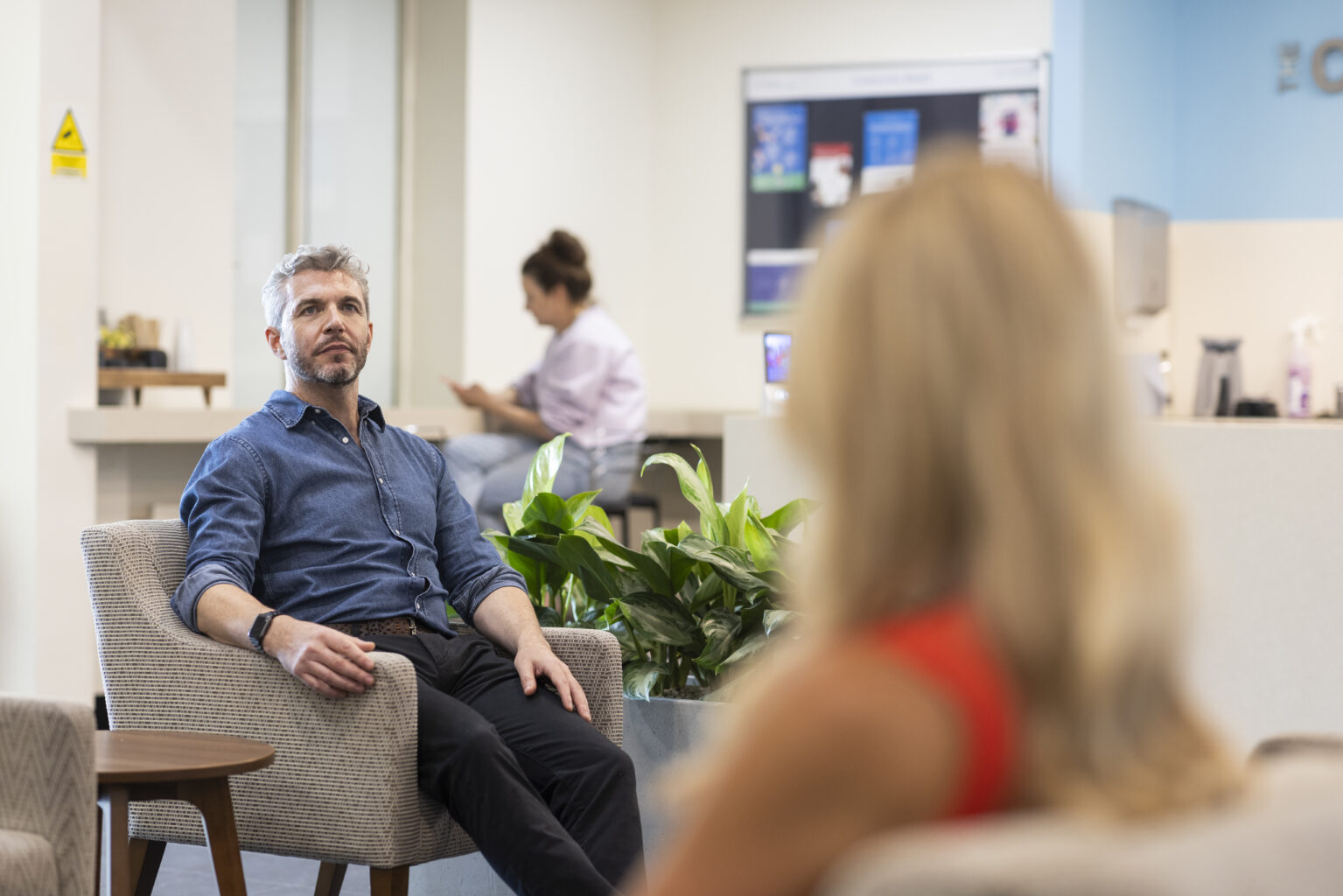Contact number: 020 7806 4060
What is Epididymal Cyst Removal?
Epididymal cyst removal is a minor surgical procedure to remove cysts that form in the epididymis, the small, coiled tube at the back of the testicle that stores and carries sperm. These cysts, also known as spermatoceles, are typically harmless but may require treatment if they cause:
- Discomfort or pain
- Swelling in the scrotum
- Concerns about their size or appearance
The surgery is performed under local or general anaesthesia, ensuring minimal discomfort. Most patients recover quickly, with minimal disruption to daily life.
Epididymal Cyst Removal at St John & St Elizabeth Hospital
At St John & St Elizabeth Hospital, we provide epididymal cyst removal with a focus on patient comfort and wellbeing. Our skilled urology consultants take a careful, personalised approach to ensure the procedure is as smooth and stress-free as possible.
Why choose us for epididymal cyst removal?
- Specialist Urologists: Our consultants are highly experienced in treating conditions affecting the male reproductive system.
- Personalised Care: We take the time to understand your concerns and tailor the treatment to effectively address your epididymal cyst, ensuring your comfort throughout.
- Modern Facilities: Our hospital has advanced surgical facilities to provide a safe, precise, and efficient removal procedure.
- Accessible Location: Based in NW8, we serve patients from Hampstead (NW3), Kilburn (NW6), and across London.
We are committed to helping you feel comfortable and confident by delivering expert care in a supportive environment.
Surgeons who perform Epididymal Cyst Removals in London
How Much Does Private Epididymal Cyst Removal Surgery Cost?
£2,305
Private Epididymal Cyst Removal costs £2,305 at St John & St Elizabeth Hospital.
The price shown includes all hospital related costs associated with your treatment, from admission to discharge. The price does not include the cost of consultation, diagnostics, or the surgeon or anaesthetist fee.
Our hospital fee is guaranteed at the price quoted and valid for one month from the date issued, subject to pre-assessment.
Frequently Asked Questions About Epididymal Cyst Removal
St John & St Elizabeth Hospital is located in St John’s Wood (NW8), a well-connected area of North West London. We are conveniently accessible for patients from Hampstead (NW3), Kilburn (NW6), and beyond.
By Tube:
- St John’s Wood station (Jubilee Line) is just a 5-minute walk from the hospital.
- Finchley Road (NW3) and Kilburn stations (NW6) on the Jubilee Line provide excellent connections.
By Bus:
- Wellington Road: Routes 13, 46, 82, and 113 stop near St John’s Wood Underground Station, just a short walk from the hospital.
- Circus Road: Routes 46 and 187 stop close to the hospital’s Circus Road entrance.
- Abbey Road: Routes 139 and 189 stop near the junction where Grove End Road becomes Abbey Road, providing easy access.
Major Roads:
If you’re travelling from NW3 or NW6, major routes such as Finchley Road or Kilburn High Road offer a direct approach to the hospital
The procedure to remove an epididymal cyst is performed under local or general anaesthesia, so you won’t feel pain during surgery. Some mild soreness or swelling may occur afterwards, but this can be managed with pain relief medication.
The surgery typically takes 30 to 60 minutes, depending on the size and location of the cyst.
Most patients recover quickly and can return to light activities within a few days. Full recovery usually takes one to two weeks, during which strenuous activities and heavy lifting should be avoided.
Immediate Post-Operative Care and Pain Relief Medication
You may experience some swelling, bruising, or discomfort in the scrotum for a few days after the surgery. Pain relief medication will be provided to manage any discomfort. You will also be given instructions on how to care for the incision site and what to expect during the initial recovery period. Urological surgeons will provide expert care and support during the recovery process.
It’s important to avoid heavy lifting, vigorous exercise, and sexual activity for at least two weeks to allow the incision to heal properly. Wearing supportive underwear can help reduce swelling and improve comfort during recovery.
Follow-Up Care, Recovery, and Wearing Supportive Underwear
A follow-up appointment will be scheduled approximately two weeks after the surgery to check that the incision is healing and there are no signs of infection or complications. Your surgeon will also discuss preventive measures and provide advice on when it is safe to resume normal activities, including exercise and sexual activity.
An epididymal cyst may need to be removed if it grows large enough to cause pain, discomfort, or noticeable swelling in the scrotum. There is no fixed’ size for removal, as the decision depends on the symptoms and impact on your daily life. Your consultant will assess the cyst and recommend the best course of action.
Recovery from epididymal cyst removal typically takes 1 to 2 weeks. Most patients can return to light activities within a few days, but strenuous activities, heavy lifting, or exercise should be avoided for up to 2 weeks to allow proper healing.
Epididymal cyst removal has a high success rate, with most patients experiencing relief from symptoms after surgery. Recurrence of the cyst is rare, and the procedure is generally well-tolerated with minimal complications when performed by an experienced specialist.


